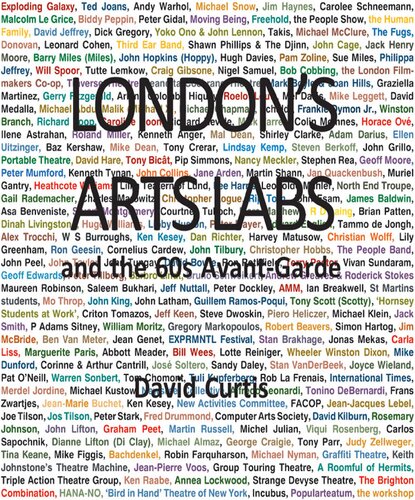

Most ebook files are in PDF format, so you can easily read them using various software such as Foxit Reader or directly on the Google Chrome browser.
Some ebook files are released by publishers in other formats such as .awz, .mobi, .epub, .fb2, etc. You may need to install specific software to read these formats on mobile/PC, such as Calibre.
Please read the tutorial at this link: https://ebookbell.com/faq
We offer FREE conversion to the popular formats you request; however, this may take some time. Therefore, right after payment, please email us, and we will try to provide the service as quickly as possible.
For some exceptional file formats or broken links (if any), please refrain from opening any disputes. Instead, email us first, and we will try to assist within a maximum of 6 hours.
EbookBell Team

4.8
14 reviewsThis is the story of two short-lived artist-run spaces that are associated with some of the most innovative developments in the arts in Britain in the late 1960s. The Drury Lane Arts Lab (1967–69) was home to the first UK screenings of Andy Warhol's twin-screen 3 hour film Chelsea Girls, challenging exhibitions (John and Yoko / John Latham / Takis / Roelof Louw), poetry and music (first UK performance of Erik Satie's 24-hour Vexations) and fringe theatre (People Show / Freehold / Jane Arden's Vagina Rex and the Gas Oven / Will Spoor Mime Theatre). The Robert Street 'New Arts Lab' (1969–71) housed Britain's first video workshop TVX, the London Filmmakers Co-op's first workshop and a 5-days-a-week cinema devoted to showing new work by moving-image artists (David Larcher / Malcolm Le Grice / Sally Potter / Carolee Schneemann / Peter Gidal). It staged J G Ballard's infamous Crashed Cars exhibition and John & Dianne Lifton's pioneering computer-aided dance/mime performances.
The impact of London's Labs led to an explosion of new artist-led spaces across Britain. This book relates the struggles of FACOP (Friends of the Arts Council Operative) to make the case for these new kinds of space and these new art-forms and the Arts Council's hesitant response – in the context of a popular press already hostile to youth culture, experimental art and the 'underground'. With a Foreword by Andrew Wilson, Curator Modern & Contemporary British Art and Archives, Tate Gallery.